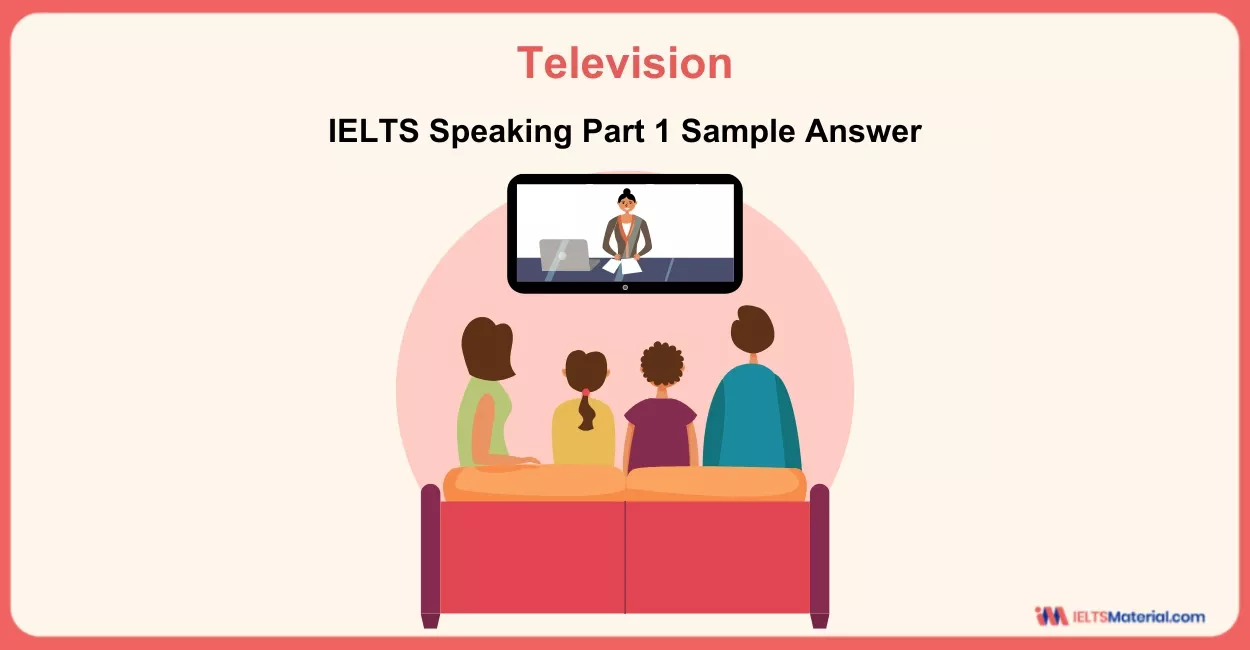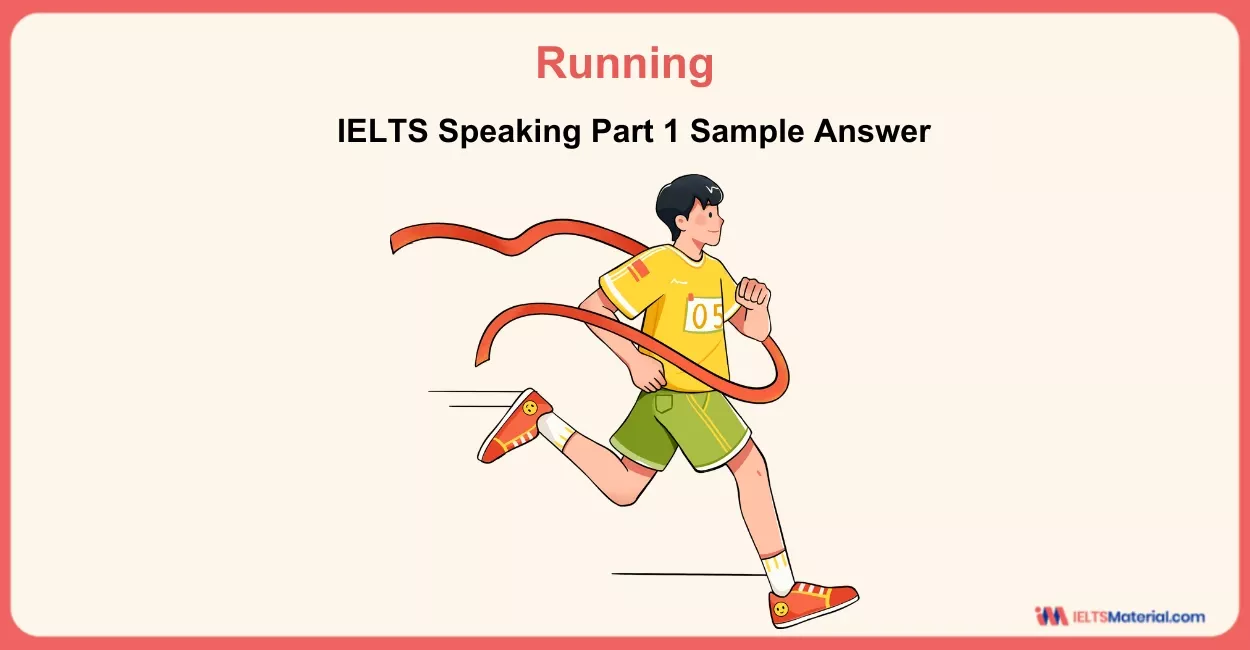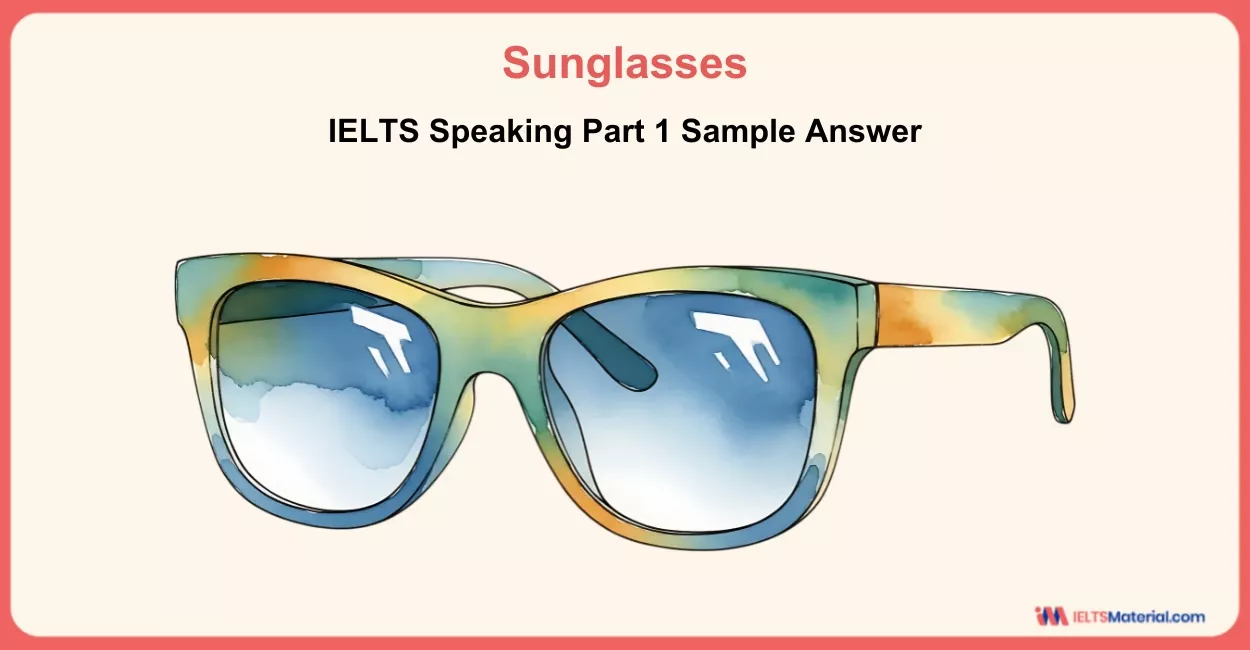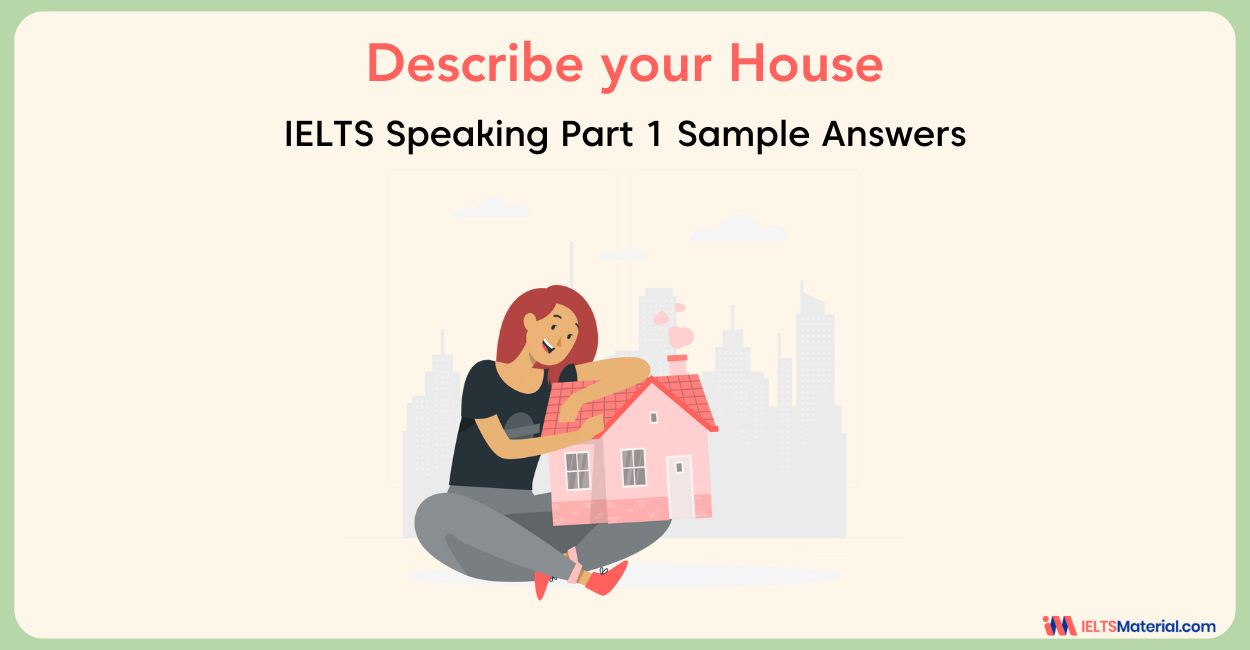Social Media - IELTS Speaking Part 1 with Sample Answers
12 min read
Updated On
-
Copy link
Practice with the Social Media IELTS speaking part 1 sample answers, vocabulary, and answer-improvement tips to improve your speaking skills. Learn to use relevant terminology and give examples to back up your responses to achieve a higher band score.
Table of Contents

Limited-Time Offer : Access a FREE 10-Day IELTS Study Plan!
As many IELTS candidates are not comfortable with speaking English, Part 1 of the IELTS Speaking test aims to create a relaxed and friendly atmosphere to help you feel more comfortable speaking in English. It focuses on simple questions based on your daily routine, interests, and personal experiences, and the best way to drive away the exam blues is to practice various IELTS Speaking Part 1 topics and questions with answers, like Social Media.
So, we have provided some Social Media IELTS Speaking Part 1 questions, along with some sample answers and related vocabulary for you to familiarize yourself with the types of questions and how to answer them!
Here is a golden opportunity to learn about more Part 1 topics like social media!
Join Us in Free IELTS Webinars!
IELTS Speaking Part 1 Questions on Social Media with Sample Answers
Social media is one of the most frequently asked topics in the IELTS Speaking Part 1, where you’ll face general questions about your habits, preferences, and opinions. With platforms like Instagram, Facebook, Twitter (X), and TikTok shaping our everyday lives, examiners are keen to test your ability to talk about this modern phenomenon fluently and naturally.
Let’s take a look at some sample responses to social media Part 1 questions from the Speaking exam that you can use to frame your answers and achieve a high band score.
1 Do you or your friends like using social media?
Sample Answer 1
Yes, my friends and I like spending time on social media to keep in touch with each other and also update ourselves on the latest trends. In fact, we spend most of our leisure time on social media to watch reels on Instagram and share memes on Facebook.
Sample Answer 2
While most of my friends like posting about their personal lives and making reels on social media, I mostly use it to keep myself updated on global events. Sometimes, they urge me to be active on different social media platforms, like Facebook and Snapchat. But I feel very self-conscious and don’t like to seek validation from strangers.
Sample Answer 3
Honestly, my friends call me the black sheep of the group for being on any social media platform. All of them regularly use social media platforms for chatting, scrolling reels and sharing memes. However, I don’t enjoy these platforms and like to keep my life away from the limelight.
2 When did you start using social media?
Sample Answer 1
I don’t remember the exact time that I started using social media. But I think it has to be around my high school years when Facebook became the talk of the town and I too got influenced.
Sample Answer 2
As far as I remember, I started using WhatsApp during my high school as I was in a boarding school and it was easier to communicate with my parents through the free of cost video and voice calls.
Sample Answer 3
I used a social media platform named Orkut when I was in college. Gradually, I lost interest and I deleted my account. I have not used social media since then.
3 What kind of people do you like to be friends with on those social media websites?
Sample Answer 1
I never make friends with strangers on social media. Usually, I connect with people I know in person via social media to stalk our crush and favorite celebrities.
Sample Answer 2
Besides my offline friends, I connect with people from different cultures and countries to know about their customs and traditions. However, I am careful to choose these friends based on their interests and our mutual friends. Nowadays, fake profiles and cyber crimes are rampant.
Sample Answer 3
To be honest, I am content with the friends I have around me. I like to interact with them face to face and enjoy our offline lives, which is away from the cyber bullying and trolling that happens on social media.
4 What kind of information about yourself have you put on social media?
Sample Answer 1
I have shared some of my personal information like date of birth, place of birth, etc. along with interests and favorites. It helps me to connect with like-minded people.
Sample Answer 2
I have a Twitter account where I have put very few personal details about myself as there are risks of phishing irrespective of the data privacy feature on the social media platforms. My account only contains general information like my favorite places, people, food, music, etc.
Sample Answer 3
I don’t have any active social media accounts as I don’t like to jump on the bandwagon. I am more invested in spending my time meaningfully by interacting with people around me and enjoying nature.
5 Do you think you or your friends use too much social media?
Sample Answer 1
Unfortunately, the answer is yes! My friends and I are a little addicted to social media, I think. We adore Snapchat and Tiktok because it’s entertaining to record yourself dancing and see them go viral. Apart from the fact that Facebook and Twitter have certain instructional content, we are free to openly express our ideas and opinions regarding social and political topics.
Sample Answer 2
Frankly, I don’t like to spend time on social media. But I know a lot of people who like killing time on these social media platforms. While most of them seem to find entertainment, connect with friends, and update their personal events, some of them keep themselves informed on current events through these platforms.
Sample Answer 3
I feel like I spend too much time on social media, to be honest. With all of the unending information and notifications, it’s simple to lose track of time. I frequently find myself scrolling through my phone for hours at a time without noticing the passing of time. I’m attempting to exercise more caution and will create boundaries for myself.
6 Do you want to work in social media?
Sample Answer 1
Of course! I have a strong interest in social media and how it can unite individuals all over the world. I could use my abilities to produce interesting material, encourage community engagement, like content creators, and support social platforms’ beneficial effects if I worked in this sector.
Sample Answer 2
I have never thought about it. But it is not exactly what I would choose first. Although I recognise the importance of social media for communication, I am concerned about how it can affect people’s privacy and mental health. A career path that is more in line with my concerns and ideals is what I would want.
Sample Answer 3
I’m definitely willing to consider that. I am aware of the significance of social media in the current digital world, and I think my abilities may be put to good use there. To make a definitive judgment, though, I would need further details regarding the precise function and responsibilities.
7 Is there anything you don’t like about social media?
Sample Answer 1
The potential for privacy to be invaded is one part of social media that worries me. It can be unnerving to see how personal data is constantly being collected and exploited for targeted advertising. It makes me concerned about our digital traces and how they might affect our privacy.
Sample Answer 2
Besides the privacy factor, I am not quite convinced about social media’s effect on mental health. Anxiety and feelings of inadequacy can be further aggravated by curating images, constantly comparing, and feeling pressured to live a flawless life. It’s critical to be aware of the potential psychological repercussions that excessive social media use might have on people.
Sample Answer 3
The rapid spread of misinformation, creating a fear of missing out and sensationalization of certain topics on social media platforms are things that I dislike most about besides the concern of privacy. False news, rumors, and misleading content can easily go viral, impacting public opinion and sometimes even influencing real-world events. It highlights the need for critical thinking and media literacy in navigating the vast amount of information available online.
Anxious about how to answer unknown questions on social media for Part 1?
Book a FREE Demo to boost your IELTS speaking now!
Vocabulary You Can Use to Answer IELTS Speaking Part 1 Questions on Social Media
Other than proper pronunciation and fluency, vocabulary is also an important part of scoring a top band score in IELTS Speaking. Therefore, being aware of that, we have curated a list of IELTS vocabulary and phrases, with their meaning, used in the sample answers above that you can use in your answers.
Get ready to amp up your IELTS Speaking score with this vocabulary list for your responses on social media!
|
Word/Phrase |
Meaning |
Example Sentence |
|---|---|---|
|
Memes |
an image, video, piece of text, etc., typically humorous in nature, that is copied and spread rapidly by internet users, often with slight variations |
Memes about the latest film quickly flooded every social media platform. |
|
Validation |
the act or process of making something officially or legally acceptable or approved |
She sought validation for her startup idea before pitching to investors. |
|
Black sheep of the group |
refers to a person who is considered different or deviant from the rest of a group or family |
He was always the black sheep of the group, preferring solitude over parties. |
|
Away from the limelight |
not in the public attention or focus; keeping a low profile |
The author prefers to stay away from the limelight despite her best-selling novels. |
|
Talk of the town |
something or someone that is widely discussed or the subject of gossip in a particular community |
The celebrity wedding was the talk of the town for weeks. |
|
Stalk |
to obsessively follow and monitor someone, usually online, often with malicious intent |
She felt unsafe after realizing someone was trying to stalk her through social media. |
|
Rampant |
widespread and uncontrollable, often used to describe negative behaviors or issues |
Misinformation was rampant during the election period. |
|
Cyberbullying |
the use of electronic communication to bully or harass someone, typically through social media |
Schools are taking steps to combat cyberbullying among students. |
|
Trolling |
posting provocative or inflammatory content online to provoke others and elicit strong reactions |
He was banned from the forum for repeatedly trolling other users. |
|
Like-minded |
people who share similar opinions, interests, or attitudes |
She joined a book club filled with like-minded readers. |
|
Phishing |
a cyber-attack where individuals are tricked into providing sensitive information, often through deceptive emails or websites |
The email looked official, but it turned out to be a phishing attempt. |
|
Data privacy |
the protection of personal information from unauthorized access or use |
Many users are now more concerned about their data privacy online. |
|
Jump on the bandwagon |
to adopt a popular trend or activity |
He jumped on the bandwagon and started a podcast like everyone else. |
|
Viral |
content that spreads rapidly and widely on the internet |
Her dance video went viral overnight. |
|
Killing time |
engaging in activities to pass the time, often without a specific purpose |
He was just killing time by scrolling through memes on his phone. |
|
Unending |
continuous and without an apparent conclusion |
The unending notifications distracted her from focusing on work. |
|
Scrolling |
moving through content on a digital device, typically by scrolling with a mouse or touchscreen |
She spent hours scrolling through her photo gallery. |
|
More in line with |
closer or aligned with a particular idea, concept, or perspective |
His latest comment was more in line with the company’s values. |
|
Unnerving |
causing discomfort, anxiety, or unease |
The silence in the abandoned building was deeply unnerving. |
|
Digital traces |
information or data left behind by online activities |
Every click you make online leaves digital traces behind. |
|
Aggravated |
intensified or made more severe |
The noise outside aggravated his already growing headache. |
|
Repercussions |
consequences or effects that result from a particular action or situation |
Her careless tweet led to serious professional repercussions. |
|
Sensationalization |
presenting information in a way that emphasizes drama or excitement to attract attention |
The news outlet was accused of sensationalization during the crisis. |
|
Media literacy |
the ability to access, analyze, and evaluate information and media content critically |
Schools are integrating media literacy into their curriculum to promote critical thinking. |
|
Content creators |
individuals who produce and publish digital content, such as videos, articles, or graphics |
Content creators are finding new ways to engage their audience during live streams. |
|
Fear of missing out (FOMO) |
the anxiety or uneasiness that one might miss out on something interesting or exciting happening elsewhere |
Her FOMO made her attend every event, even when she was exhausted. |
Grab Our 4.5+ Rated Speaking Course Now to Level Up!
Tips to Answer Social Media IELTS Speaking Part 1 Questions
Let's examine some topic-specific useful IELTS Speaking tips to impress the examiner and learn how to respond to sharing IELTS Speaking Part 1 questions.
- Mention specific platforms: Mentioning popular platforms like Instagram, WhatsApp, Facebook, LinkedIn, TikTok, or YouTube shows the examiner that you are comfortable with modern topics and are aware of the latest IELTS Speaking vocabulary to boost your score by talking about them in detail. It avoids vague answers and adds authenticity to your response.
For Example:
‘I use Instagram to follow travel bloggers and explore new destinations. On weekdays, I also check LinkedIn to stay updated with job-related news and networking.’
- Use tech-related verbs and phrases: Using action verbs and phrasal verbs specific to the digital world makes your answers topic-focused, natural, and modern. It also shows you can use real-life, colloquial English comfortably.
For Example:
‘I usually scroll through short videos before bed, but I try not to go down the rabbit hole of endless reels.’
- Express balanced opinions: Speaking Part 1 often includes opinion-based questions. Showing that you can think critically and express both sides of an issue makes your answers more thoughtful and less one-dimensional. Moreover, use linking words for IELTS Speaking section, like ‘On one hand…, on the other hand…’, ‘While some people think…, I believe…’, ‘It depends on…’, ‘Although it has advantages, there are drawbacks too.’.
For Example:
‘On one hand, social networking sites help me stay in touch with friends who live abroad. On the other hand, I sometimes feel overwhelmed by the constant stream of updates and notifications.’
- Talk about personal experiences: The IELTS Speaking test values personalised, real-life responses. Sharing your habits, routines, or experiences with social media helps you sound fluent and less rehearsed.
For Example:
‘I once spent over an hour trying to take the perfect photo just to upload on Instagram. Later, I realised I was spending too much time curating a fake version of reality.’
- Avoid repeating 'Social Media' too often: Lexical resource is a key IELTS marking criterion. Repeating the same word too many times lowers your score. Instead, paraphrase to show flexibility.
For Example:
‘I’ve tried to reduce my time on these platforms, especially when I noticed they were affecting my sleep pattern.
- Be honest about your habits: Understanding fluency and coherence in IELTS Speaking is important, and it helps to achieve when you talk honestly. The examiner is not judging your lifestyle; they are assessing how clearly and naturally you express your ideas. If you rarely use social media, just explain why, with specific examples or reasoning.
For Example:
‘I’m not very active on social media. I used to check Instagram regularly, but I found it was affecting my productivity, so I deleted the app. Now, I prefer reading or going for walks in my free time.’
To sum up, social media IELTS Speaking Part 1 is a contemporary and relatable topic. Use it as an opportunity to show fluency by discussing your personal experiences, preferences, and opinions, and incorporate topic-specific vocabulary and avoid generic answers. It is important to remember that there are no right or wrong responses for speaking topics. All you have to do is be confident and speak fluently. So, prepare with IELTS Speaking practice tests and focused strategies, and you will be ready to confidently handle any social media question that comes your way.
Useful Links:
- Names: IELTS Speaking Part 1 Sample Answers
- Music – IELTS Speaking Practice Test with Answers
- Weather/Climate IELTS Speaking Practice Test with Answers
- Sharing Things: IELTS Speaking Part 1 Sample Answers
- Describe a Time you Saw Something Interesting on Social Media- IELTS Cue Card
- Describe something interesting you learned from the internet – IELTS Cue Card
- Describe a time when you used the internet to solve a problem: IELTS Speaking
- 151 IELTS Multilevel Speaking Part 2 & 3 Topics with Model Answers
Explore IELTS Speaking

Start Preparing for IELTS: Get Your 10-Day Study Plan Today!
Explore other Speaking Part 1 Topics

Kasturika Samanta

Prity Mallick

Nehasri Ravishenbagam

Kasturika Samanta
Recent Articles
Haniya Yashfeen

Kasturika Samanta

Kasturika Samanta





Post your Comments